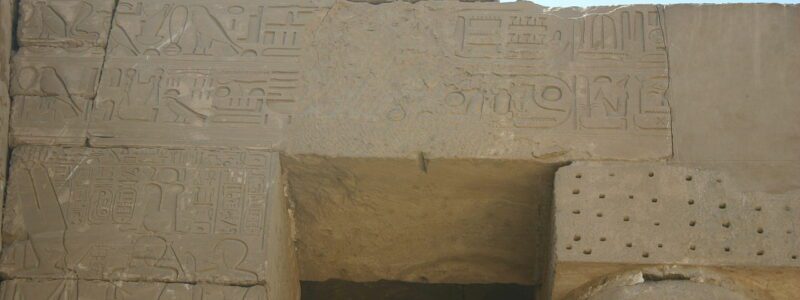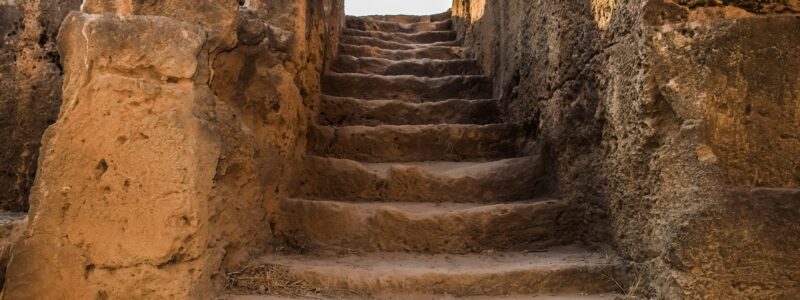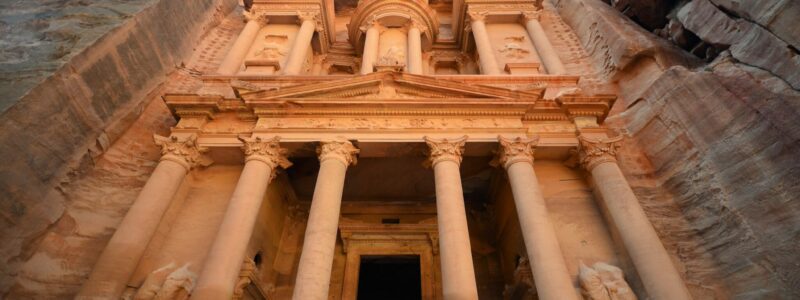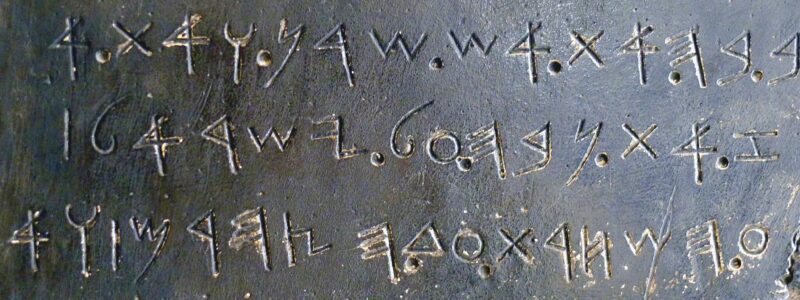The Jubilee
Scripture is like no other book; it tells the story of mankind from the beginning of time to the end of time.
It does so with an authority not seen in other books because its inspiration comes from someone who knows everything.
it was written by many people over hundreds of years, but its inspiration comes from the Creator of the universe. The Creator provides the history of the universe in broad terms so that we might understand our place in the universe and the reason why we walk the earth.
Modern science tells us the universe consists of multiple dimensions – at least ten or eleven to be exact. We all have intimate knowledge of four of these dimensions: height, width, length, and time. The fourth dimension is unidirectional – it only goes in one direction; it is impossible to go back in time.
God is the Creator of these multiple dimensions including time. Being the creator of time, he is outside of it and can view all of time simultaneously. That is what Scripture means that
I make known the end from the beginning, from ancient times, what is still to come. (Isaiah 46:10).
Israel
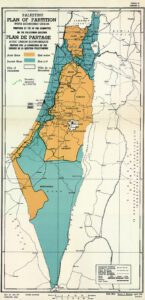
By Zero0000A/RES/181(II) – m0103_1b.gif on PLAN OF PARTITION is from UNGA Resolution 181 (27 Nov 1947). THE overdrawn UNSCOP boundary is from United Nations Special Committee on Palestine, Report to the General Assembly, 3 Sep 1947, Volume II, A/364, Add. 1., Public Domain, Link
Many centuries after the beginning of mankind with Adam, God set in motion the world’s redemption through an obscure nomad named Abraham. He was a pagan, worshiping the gods of his culture and would have been lost to obscurity were it not for his calling. He was informed he would produce a race of people who were chosen by God for great things.
They were not chosen because they had done anything special or possessed any special talent or trait. But the grandson of Abraham named Jacob would have his name changed to Israel; the children of Israel would form twelve tribes that would be rescued from slavery in Egypt and led to the Promised Land.
The history of Israel is important for many reasons. The most important is that the Savior was born nearly two thousand years after Abraham lived. Christ was descended from Abraham through King David through Mary – his mother.
But the history of Isreal is also important because the history of Israel is the history of the world.
The history of Israel is very important to our history today – and to the future of the world. The history of modern presidents, countries, wars, and disasters are peculiarly timed involving ancient covenants and the Jewish people.
The working out of the history of ancient Israel in today’s headlines is an amazing finding open to those who know where to look.
It will be the place of this series of articles to view modern history – particularly of the last two centuries – in the light of ancient Jewish covenants with God.
Christian and Jewish History
It is an unfortunate historical fact that Christians know little concerning their Jewish roots. Most Christians skim through the Old Testament as though it is only the prelude for the “main event.” The Church lost its intimate understanding of Jewish culture and tradition after the first century. The Jewish nation rebelled against their Roman overlords and was eventually dispelled throughout the world in what is known as the diaspora. This dispersion resulted in a separation of Jews from their Christian brothers.
Jews formed their communities; it was a great cultural sin to intermarry with those outside the faith. Christians blamed the Jews for the death of Christ and frequently engaged in unfortunate persecution of Jewish communities.
Jews came to distrust Christians remembering how they were mistreated over hundreds of years. This separation of the two communities came at a great cost to both.
As Christians lost their knowledge of Jewish traditions and festivals, they lost an understanding of Jewish history and the importance of that history of future events.
The history of God’s Chosen People would play out in the history of the world – especially toward End Times. The last two hundred years have demonstrated an amazing replay of this Jewish history in our current events. An understanding of Jewish history will help to understand how ancient history manifests itself today.
Moses
The great prophet Moses is one of the most amazing characters in the Old Testament. He was rescued by death by his mother who placed him as a baby into a reed basket. The Pharoah or Egyptian King at the time was concerned about the growth of the Jewish people who were working as slaves. The Pharoah was concerned they might rebel against their Egyptian oppressors and overthrow the government. He decided to reduce their population by throwing all the newborn boys into the Nile River where they would drown or be eaten by predators living in the water.
Rather than carry out this order, Moses’ mother decided to float him in a reed basket in the water where he might have a chance of survival. He was found by the daughter of the Pharoah who raised him in the family. He did well and was valiant in leading the Egyptian army against their foes – especially the Ethiopians.
But Moses was troubled because he knew his people were being mistreated by the Egyptians and were being held against their will Eventually, he would have to leave Egypt after killing an Egyptian guard who was beating a Jew, and spent forty years in the backside of a desert tending sheep.
God would reveal Himself in a burning bush – a bush that would appear to be burning but would not be consumed by the fire. God would tell Moses to inform the Pharoah that he had to let the Jews go – or else there would be terrible consequences. Plague after plague came against Egypt, each plague being directed against one of their gods.
Finally, every firstborn Egyptian male was killed, while the Hebrew firstborn were protected by sheep’s blood painted over the door to their houses. This event would be memorialized as the Passover and is always celebrated on the 14th day of the Hebrew month of Nissan during the time of the full moon.
Pharaoh finally decided to let the Jews leave Egypt, and they traveled day and night to get out of the country. Pharoah then changed his mind and went with his army to subjugate the Hebrews and bring them back to Egypt as slaves. The Hebrews were trapped on a small peninsula sticking out into the Red Sea when Moses performed one of the greatest miracles in Scripture – the parting of the Red Sea. The Hebrews crossed a thin rim of land under the Red Sea to get to the other side; the Egyptians followed them but before they could catch the Hebrews, the Red Sea collapsed upon them drowning Pharoah’s army.
The Jews were then separated from Egypt in a land known today as Saudi Arabia where they received the Law of Moses on Mt. Sinai. They then traveled to the Promised Land where they could build their own country and live by God’s will – or at least that was the plan.
Moses and Future Destruction and Scattering of Israel
Just before he died, Moses foretold what would happen to Israel centuries in the future. It is believed the Hebrews entered into the Promised Land in the year 1406 BC. Moses noted in the future,
Just as it pleased the LORD to make you prosper and multiply, so also it will please Him to annihilate you and destroy you. And you will be uprooted from the land you are entering to possess. Then the Lord will scatter you among all the nations, from one end of the earth to the other, and there you will worship other gods, gods of wood and stone, which neither you nor your fathers have known. Among those nations, you will find no repose, not even a resting place for the sold of your foot. There the LORD will give you a trembling heart, failing eyes, and a despairing soul. (Deuteronomy 28:64).
In the year 70 AD, the Roman legions would defeat the Hebrews living in Israel and would drive the people into exile to the ends of the earth. They would be persecuted by multiple nations throughout the world and would wander the earth as no other people have ever wandered the earth.
This exile lasted into modern times when the Nation of Israel was born in May 1948.
The Jubilee
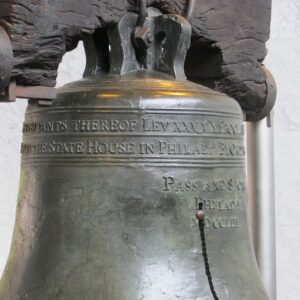
The Liberty Bell with the Leviticus Inscription. Image by Andrea Hamilton from Pixabay
The Liberty Bell outside of Independence Hall in Philadelphia is familiar to many Americans. It is one of the most visited historical locations because it is a symbol of America. There are words inscribed on the Liberty Bell which read,
Proclaim liberty throughout all the land unto all inhabitants thereof. (Leviticus 25:10)
This Scripture in Leviticus concerns something called the Jubilee year. This is part of ancient Israel that is not at all familiar to many Christians because they are largely ignorant concerning their Jewish roots. Also, the Jubilee is no longer practiced in Israel – and it is believed it was rarely practiced in ancient Israel as well.
The Jubilee year happened once every fifty years. It was a time when you would come home. Your family would come home to your ancestral land; your separation from the land is ended. The Jubilee is the year for the restoration of that which was lost. For example, if you lost your land because of bankruptcy, it would be returned to you during the Jubilee year.
Each of the ancient twelve tribes of Israel (except the Levites) was given a large parcel of land by Joshua when they entered the Promised Land. Then, each tribe and family would also receive a parcel of land. Over the next fifty years, that land might potentially change hands several times; but on the fiftieth year, the land would revert to its original owners.
This was an image that the land of Israel belonged to God, and was apportioned to his people based upon their family tribe, and clan. It was not strictly the property of an individual who bought the land, as he could only have use of the land until it reverted to its original owner.
The Stranger
The Jubilee tells that the land of Israel is tied to the people of Israel. As long as the people of Israel followed their God and obeyed his commandments, then the people and the land would be one together.
The latter chapters of the last book of the Torah, Deuteronomy, was written by Moses before Israel finally goes across the Jordan River into the Promised Land. Moses knew that he would not live to go into the land with them, and so was giving the people his last instructions.
He wanted them to be sure to understand that even though they are the Chosen People – the people from which the Savior would be born and who would have God’s special blessings – they had to obey God’s laws. The ability of Israel to stay in the Promised Land was conditional upon their obedience. It was especially important for the Jewish people not to intermarry with other nations since this could eventually lead to the loss of Jewish identity.
The Jewish people first and foremost had to separate themselves from the other nations and not adopt their customs or intermarry with them. If they were to do that, then they would be blessed; otherwise, they would eventually be expelled from the land.
Ancient Israel would enter a land described as flowing with “milk and honey,” which was very fertile producing crops with plentiful harvest and supporting all manner of livestock.
But Moses knew better. He knew Israel would rebel against God, follow their ideas of right and wrong, and end up following other gods. Perhaps even worse, they would kill their children in sacrificial rites to these ancient foreign gods further provoking Yahweh’s wrath. Separation from the Mosaic Law would separate the people from their identity, causing them to forget who they were. They would then turn away from God and assume the pagan customs of their neighbors.
Yahweh was slow to anger and would warn the people multiple times of impending destruction. The northern ten tribes of Israel would be led away into captivity by the Assyrians, a fact well documented by secular history. The southern two tribes would get a reprieve, but they too refused to listen to God’s warning and decided to follow what they thought was right – not what God thought was right. They suffered through a series of evil kings who led the country into further idolatry until it would finally be too late.
Even the longsuffering God ran out of patience and brought judgment to the nation of Israel.
Enter the Babylonians and the Persians
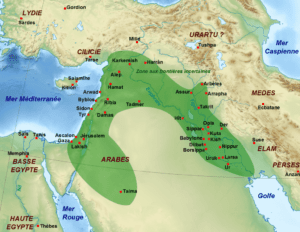
By Empire_neo_babyloien.svg: *Middle_East_topographic_map-blank.svg: Sémhur (talk)derivative work: Zunkir (talk)derivative work: Zunkir (talk) – Empire_neo_babyloien.svg, CC BY-SA 3.0, Link
Both the Babylonians and the Persians were wicked, warring nations whose every thought was toward conquest. The Babylonians had defeated the Assyrians in the Battle of Nineveh in 612 BC. This battle left the Babylonians as the most powerful nation in ancient Mesopotamia and they sought to consolidate their power by controlling the smaller nations around them.
The remnant Jewish nation made the ultimate mistake of shifting their alliance to Egypt, causing the Babylonians to destroy their country. They eventually captured Jerusalem, destroyed the Temple, and carried off the survivors into captivity where they stayed for seventy years.
Babylon would eventually be overthrown by the Persians in 539 BC and would eventually allow the Jews to return to their land.
Eventually, the small Jewish remnant who left Persia would rebuild their Temple and would be visited by the Messiah centuries later at the exact time foretold by the ancient prophet Daniel. Even though the Jews were anxiously awaiting the Messiah, they were looking for a conquering King and not a suffering servant as foretold by Isaiah (Isaiah 53). The Messiah foretold the imminent destruction of Jerusalem about forty years after the crucifixion.
The only time Israel was truly scattered throughout the known world at that time was when they were forcibly dispersed after the conquest of Jerusalem by the Romans in 70 AD. There would be another brief attempt at Jewish revolt as Bar Kokhba led an insurrection against Hadrian which was eventually ruthlessly crushed by multiple Roman legions. Upwards of 600,000 Jews were killed, with Jewish communities throughout Judea devastated in a process many will describe as a genocide.
Jews were forbidden to return to their capital of Jerusalem which was renamed Aelia Capitolina. They were entirely expelled not only from the city they once knew but also from the country of Israel. They were scattered throughout North Africa and what is now known as Europe and Asia. Amazingly, the Jewish people did not intermarry with the local populations but remained a distinct ethnic group for many hundreds of years.
But the land missed them. The Jews had prospered the land, made it bloom with fruits of every kind, but when they left, the land was left untilled and eventually became a desert.
Centuries earlier, Moses warned the people this would happen due to their unbelief. They would be expelled from the land, and the land would return to a barren desert. This would occur at the “last time.”
Moses notes,
…the stranger that shall come from afar land, shall say when they see the plagues of that land, and the sicknesses which the Lord has laid on it: “The whole land is brimestone, salt, and burning; it is not sown, nor does it bear, nor does any grass grow there, like the overthrow of Sodom and Gomorrah.
The timing of the destruction foretold by Moses is important because his narrative introduces a “stranger.” The Hebrew Old Testament uses the word “akharone” which is defined in Strong’s Hebrew Aramaic dictionary (word 314) as meaning later or last. Scripture uses this word in multiple places but two are important for our narrative.
Listen to Me, O Jacob, and Israel, My called: I am He; I am the First and also the Last.
The word “last” is in this quote is “akharone.”
Similarly, in Revelations 2:8,
And to the messenger of the assembly in Smyrna write, ‘This says the First and the Last, who became dead, and came to life.’
Then Moses goes on to talk about a “stranger” or a “foreigner” who will come in the “last days” (“akharone” days) to the land of Israel who will marvel at the desolation of the land. It is a wasteland of desert nobody wants.
Interestingly, this stranger will come at a time before the establishment of modern Israel with the Jewish return making the land once again blossom. The stranger would come to the land and write its utter devastation. The stranger would be a skeptic, not believing in God but would without his knowledge affirm Scripture by unwittingly using Moses’ phrases.
The stranger would write about the “plagues of that land” with the following words,
Rags, wretchedness, poverty, and dirt. … Lepers, cripples, the blind. … To see the numbers of maimed, malformed, and diseased humanity that throng the holy places .”
Moses said the end time stranger would say,
All its land is … a burning waste.
or in another translation,
Your land has become a scorching desert.
The stranger would write
It is a scorching, arid, repulsive solitude
Such roasting heat, such oppressive solitude, and such dismal resolution cannot surely exist elsewhere on earth.
Nowhere in all the waste around was there a foot of shade, and we were scorching to death.
Moses wrote the stranger would testify there was no one in the land to sow it and the stranger said,
One may ride ten miles, hereabouts, and not see ten human beings.
…these unpeopled deserts, these rusty mounds of barrenness, that never, never, never do shake the glare from their harsh outlines …
There is not a solitary village throughout its whole extent – not for thirty miles in either direction.
Moses said the stranger would allude to the inability of the land to support vegetation and the stranger wrote,
The valleys are unsightly deserts fringed with a feeble vegetation.
…a desert, paved with loose stones, void of vegetation, glaring in the fierce sun.
…this blistering, naked treeless land.
Moses also noted concerning the land,
The anger of the Lord burned against that land, to bring upon it every curse which is written in this book.
God cursed the land for the sinfulness of the Jews who once inhabited it centuries before. The stranger – a cynic unbeliever in God, noted concerning the land,
Palestine sits in sackcloth and ashes. Over it broods the spell of a curse.
The stranger then summed it up by saying,
Palestine is desolate and unlovely. And why should it be otherwise? Can the curse of the Deity beautify a land?
The stranger would bear witness to the desolation of the land once flowing with “milk and honey” but now a barren waste of desert with hardly an inhabitant. These words would appear in newspapers and articles across America and in many countries. The cynic would bear witness to countless thousands of his generation and would thus fulfill the ancient prophecy of Moses.
The stranger had to come to Palestine before the return of the Jewish people which would cause causing the land to bloom once again, bearing fruit that would be sold all through the Middle East and Europe.
The stranger had an illustrative career and was very famous then, and remains so today. He fulfilled his main purpose in life by fulfilling an ancient prophecy without even recognizing he was doing anything of great significance.
The stranger also fulfilled this prophecy at the exact time needed as it would enter into the return of the Jubilee Years; the return of the land of Israel to the Jewish nation had to occur in a Jubilee Year. The problem was nobody knew the time of the Jubilee Years – the time every fifty years when land would return to its original owners – since antiquity.
The year the stranger from a far land wrote articles about Palestine that would spread throughout the English-speaking world was in 1867 – through future events, this would be established as a Jubilee Year. The stranger’s articles would be incorporated into a book published with the title, The Innocents Abroad by Samuel Clemens – otherwise known as Mark Twain.

